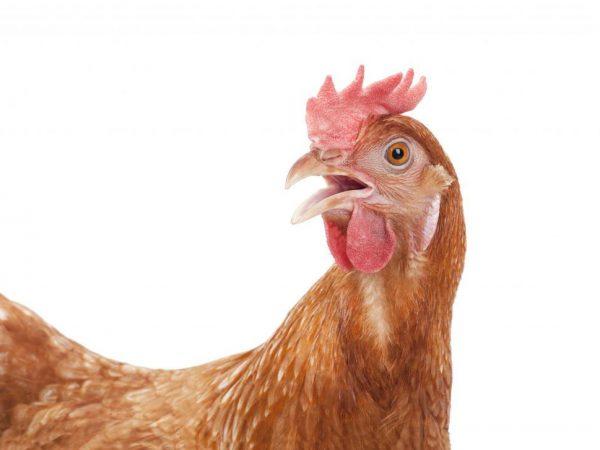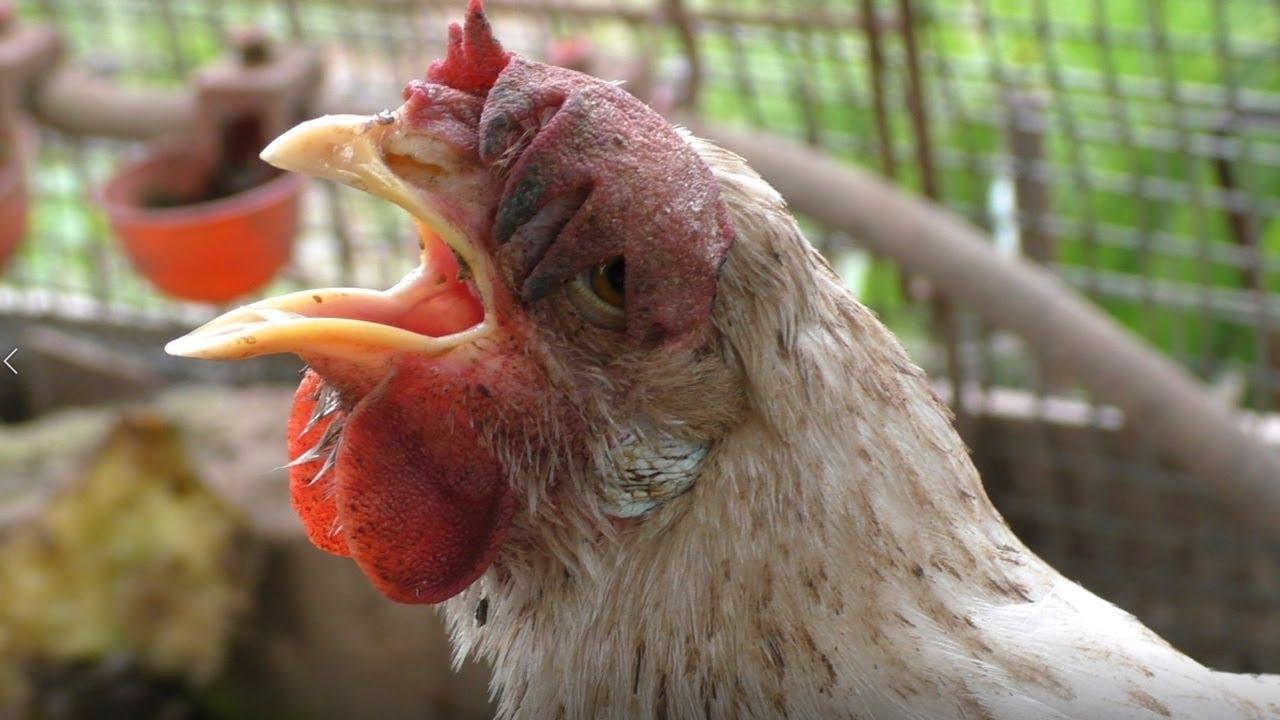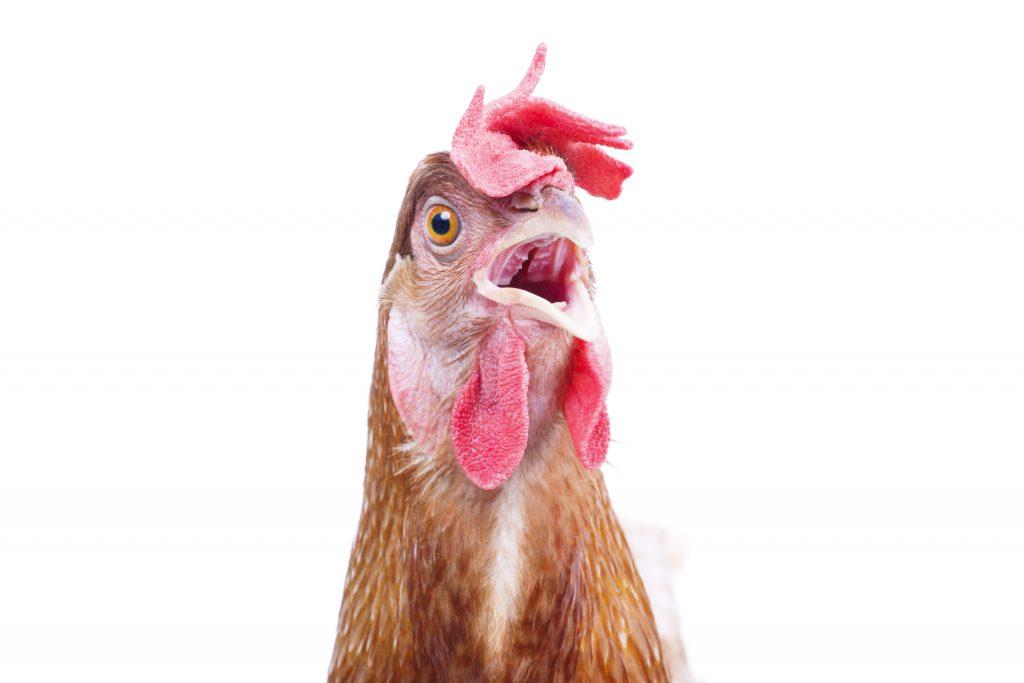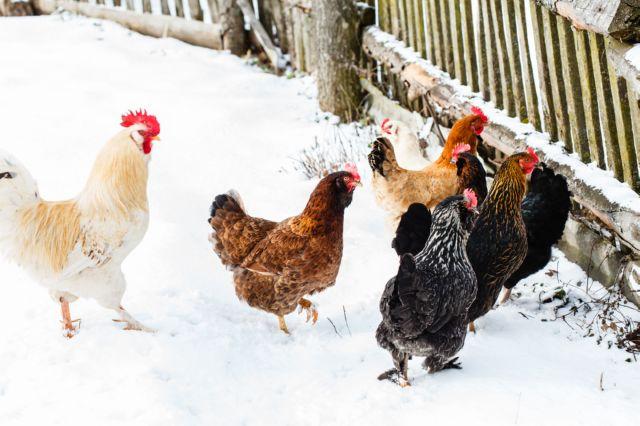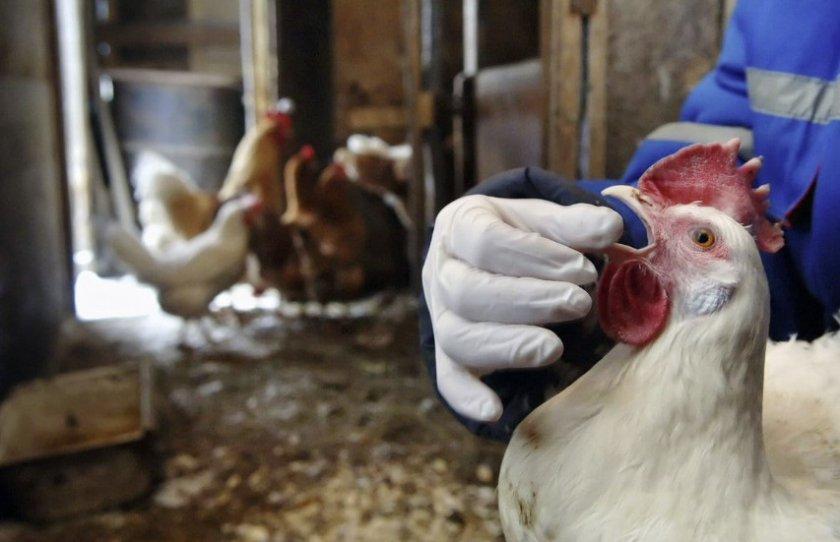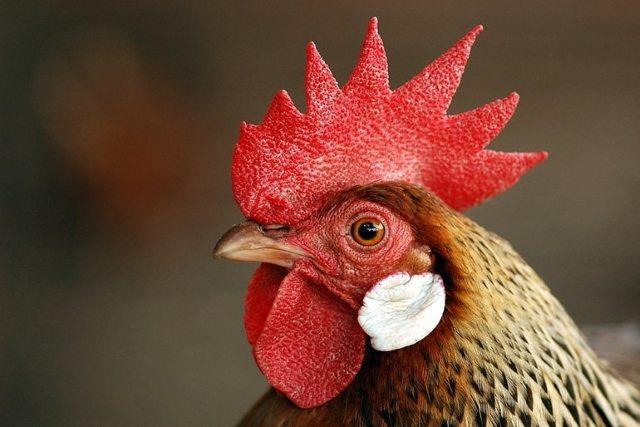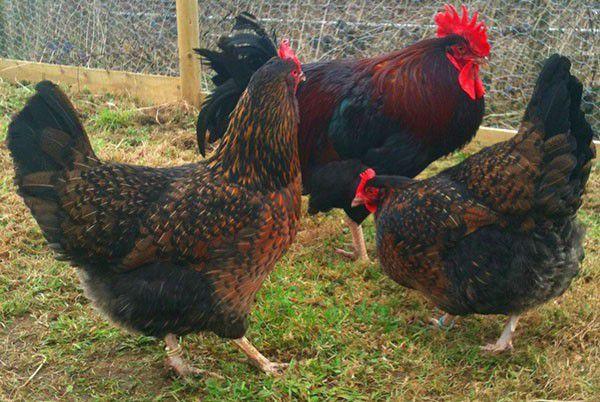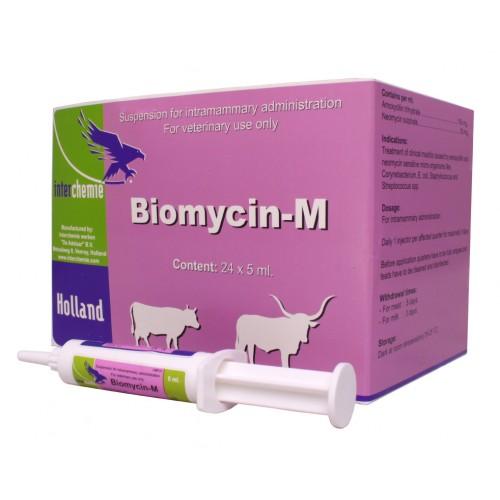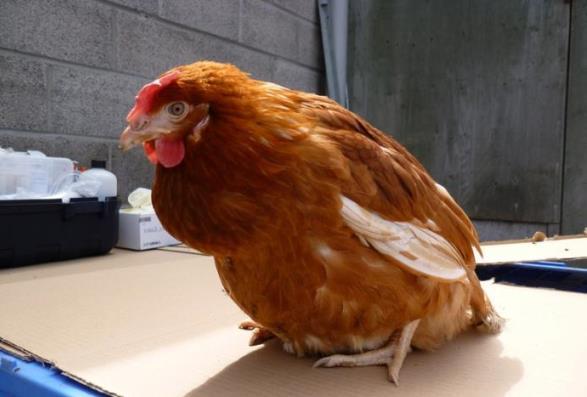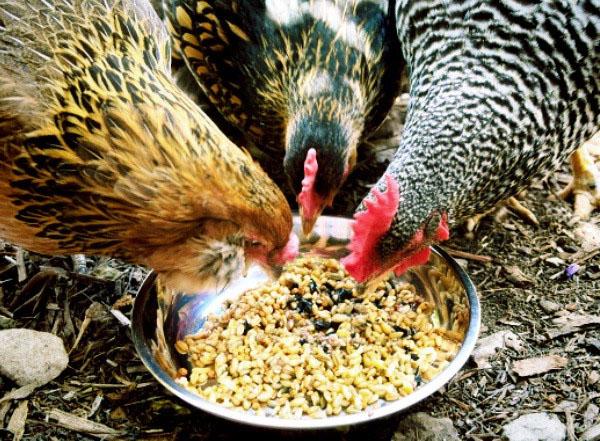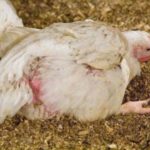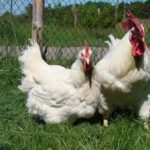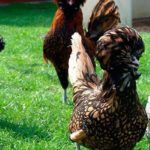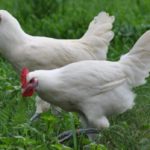If chickens sneeze, you need to take immediate action. The appearance of this symptom indicates the development of dangerous viral or bacterial pathologies. Also, this violation is often caused by violation of the conditions of keeping birds. To avoid such problems, it is recommended to isolate the sick bird from the flock and find effective treatment for it. Correcting nutrition and changing the rules of care are of no small importance.
- Why do chickens wheeze and sneeze?
- Rhinotracheitis
- Laryngotracheitis
- Cold
- Infectious form of bronchitis
- Colibacillosis
- Mycoplasmosis respiratory
- Bronchopneumonia
- Tuberculosis
- How to find out the reason?
- Basic rules of treatment
- Precautionary measures
- Consequences
- Preventive measures
- Conditions of detention
- Drug prevention
- Folk prevention
Why do chickens wheeze and sneeze?
If birds are sick, they will most likely begin to wheeze and sneeze. These symptoms may indicate the development of a cold or other bronchial lesions. It is strictly forbidden to ignore them, as there is a risk of losing the entire livestock.
Rhinotracheitis
This is a relatively new respiratory infection that causes swelling of the head and symptoms of respiratory tract damage. In this case, in chickens or adults, damage to the larynx, nasal cavity, and trachea is observed.
The mucous membranes of the organ of vision are also affected. Watery eyes are often observed. As a rule, chickens recover, but subsequently lag significantly behind in development.
Laryngotracheitis
The key symptom of the disease is the appearance of a loud noise in the throat during coughing. This is a viral herpes infection, which is accompanied by rhinitis and conjunctivitis. The pathology often remains active for up to 2 years.
Laryngotracheitis is characterized by 2 main forms - acute and hyperacute. In the first case, there is a risk of mortality of up to 15% of sick birds. Hyperacute leads to the death of 50-60% of birds. With this form of pathology, up to 80% of birds become infected on the first day.
The main symptom of the disease is very heavy breathing. Then a cough appears. It is accompanied by bloody or other discharge. The mucous membranes may become covered with cheesy secretions, there are signs of suffocation and coughing.
Birds lose activity and their egg production decreases. Healthy birds can wheeze for a long time and suffer from conjunctivitis. With the development of an acute form of pathology, the spread of infection is possible up to 10 days.The main signs are cough, general weakness, and wheezing. Curd-like discharge, swelling of the larynx, and screaming in the throat are also possible.
Cold
This pathology is often found in chickens. Birds with weakened immune systems are more susceptible to it. The main cause of problems is hypothermia. With inflammatory damage to the respiratory system, swelling of the mucous membranes is observed. As a result, the birds begin to breathe heavily, wheezing and sneezing.
After a certain time, mucous discharge from the nose and cough occur. It is recommended to separate a chicken with a cold from healthy birds and select treatment. An untreated cold can cause complications.
Infectious form of bronchitis
If treatment for a cold does not produce results, infectious bronchitis may be suspected. Its symptoms are similar to colds. At the same time, the bird breathes through its mouth, wheezing, sneezing, and severe coughing are observed. There is also a violation of egg production.
Infectious bronchitis can spread at different rates. If the pathogen enters the lung tissue, it is almost impossible to avoid the death of chickens. The spread of the virus occurs through the air. It remains active within a radius of 1 kilometer. It takes 18-36 hours to transmit the infection.
It is impossible to cure infectious bronchitis in chickens, so sick birds are isolated and the premises are disinfected.
Colibacillosis
This pathology affects young animals aged 3-14 days. With the development of the acute form of the disease, the following manifestations occur:
- temperature increase by 1.5-2 degrees;
- strong thirst;
- loss of appetite and weight;
- general weakness;
- diarrhea.
Death in the acute form of the pathology occurs due to intoxication of the body.If the pathology is not cured, it becomes chronic. In this case, the following symptoms appear:
- pronounced thirst;
- loss of appetite and weight loss;
- heavy breathing, shortness of breath, sneezing, wheezing, coughing.
At the same time, a screaming and crunching sound appears in the chest. The chronic form of the pathology often leads to death.
Mycoplasmosis respiratory
This infectious disease affects the entire population. In this case, the pathology spreads in the following ways:
- through water;
- when sneezing and coughing;
- from mother to chicks.
The viral infection can even affect eggs. Infection occurs very quickly. If there is any suspicion of pathology, it is recommended to isolate the sick bird. In this case, its eggs must be destroyed.
Typical symptoms include the following:
- heavy breathing through the mouth, wheezing and coughing, sneezing;
- diarrhea;
- deterioration of health.
In advanced cases, the bird becomes a source of infection. In the flock, the first to suffer is the rooster. It is always recommended to get tested immediately if suspicious symptoms appear.
Bronchopneumonia
This is one of the most common consequences of an untreated cold. The pathology most affects chickens 2-3 weeks old. The risk of developing the disease increases with insufficient temperature in the poultry house and exposure to drafts. Chickens can also suffer if they are not protected from precipitation and cold winds.
Common symptoms of bronchopneumonia include moist rales and increased breathing. At the same time, the birds constantly sneeze and lose activity. They sit a lot, do not move, do not eat or drink. After just 2 days, the weakest and youngest individuals die.
Tuberculosis
Sometimes sneezing is associated with the development of tuberculosis. When this pathology occurs, cough and diarrhea occur.Tuberculosis is not characterized by rapid development. Therefore, it is enough to simply get rid of infected birds and disinfect the poultry house.
How to find out the reason?
To understand why a bird is sneezing and breathing heavily, it is worth analyzing the symptoms. It is the clinical picture that will help make an accurate diagnosis.
The most harmless disease that causes chickens to cough and wheeze when breathing is considered to be a cold. It develops due to hypothermia or drafts in the room.
Chickens die from colds if they are very weak or too old. The development of complications also causes negative consequences. In other situations, colds are easily treated and do not cause negative consequences. If your chicken opens its beak when it breathes or has a gurgling sound in its throat, you may want to look for additional symptoms. With lung pathologies, there is a risk of bird death within 1-2 days.
Danger signs include the following:
- hard breath;
- severe wheezing;
- open mouth;
- swelling of the mucous membranes;
- mucous discharge from the nose;
- cough;
- whistling when breathing;
- reduction or complete cessation of egg laying.
If such signs are detected, it is recommended to take immediate action. A sick chicken should be immediately isolated to stop the spread of infection. It is especially important to protect young or old birds, since they are at risk for developing pathologies of the bronchi and lungs.
Basic rules of treatment
To avoid mass deaths of laying hens, it is recommended to make an accurate diagnosis in a timely manner and select adequate treatment. If a cold develops, broilers and other chickens should be treated using the following methods:
- Insulate chicken coops and protect the premises from drafts and dampness.Temperatures should not be less than +15 degrees.
- It is recommended to feed young animals with nettle decoction. You can also do inhalations with essential oils.
- When infectious bronchitis is detected, it is recommended to use disinfectants. These include Lugol's solution and aluminum iodide.
- If bronchopneumonia is detected, it is worth checking the living conditions of the birds. Most often the problem is associated with hypothermia in birds. In this case, it will not be possible to do without antibiotics. Spiramycin, Streptomycin, and Erythromycin are most often prescribed. It is recommended to give tiamulin to young animals.
- To restore egg production, it is recommended to use Typozin. It is administered by injection. It is recommended to use 3-5 milligrams of the product per 1 kilogram of body weight.
- When colibacillosis develops, it is recommended to use antibiotics. In this case, it is worth using Biomycin, Terramycin, Syntomycin. The duration of therapy is 5 days. If necessary, it is permissible to reuse the products. It should be borne in mind that when using antibacterial drugs, chicken meat and eggs are prohibited from being consumed for 2 weeks.
Precautionary measures
To prevent infection of poultry, it is recommended to take precautions. First of all, a sick bird should be isolated.
To avoid widespread infection of the herd, it is recommended to follow these recommendations:
- instead of water, give the birds nettle infusion;
- use vitamins and minerals;
- crush the streptocide tablet and use the resulting powder to powder the beaks.
The parameters of humidity and temperature in the chicken coop are of no small importance. It is also recommended to avoid drafts.
Consequences
With timely detection, adequate care and effective treatment, diseases of the lungs and bronchi have a favorable prognosis. After 4-7 days the bird can be completely cured. However, it may take longer to treat chickens.
If you do not provide birds with adequate conditions, there is a risk of their death. The likelihood of death increases in conditions of high humidity, cold, and drafts. Problems are also possible with an unbalanced diet and lack of adequate treatment.
Preventive measures
Frequent pathologies negatively affect the quality characteristics of eggs and meat. With adequate treatment of the poultry house, such problems can be avoided.
Conditions of detention
To avoid diseases, it is important to provide chickens with adequate living conditions. It is recommended to follow these rules:
- keep birds in a properly built house;
- give chickens high-quality and healthy food;
- clean the chicken coop in a timely manner;
- regularly add vitamins to your food.
Birds should be periodically examined for ulcerative defects and bald spots. It is also worth paying attention to the discharge from the beak. In addition, changes in stool become a sign of disease.
Drug prevention
To avoid problems, you should give your chickens vitamin supplements. They help strengthen the immune system of birds. Only a veterinarian can prescribe medications.
Folk prevention
The following should be taken as additional preventive measures:
- ventilate the chicken coop;
- add calcium to food;
- insulate housing;
- carry out wet cleaning.
Chicken sneezing can be due to various factors. To cope with this problem, it is worth making a correct diagnosis.In this case, it is necessary to pay attention to the clinical picture of the pathology.

